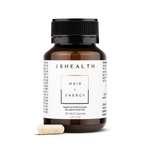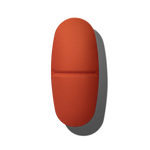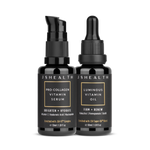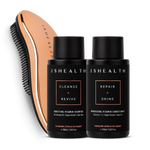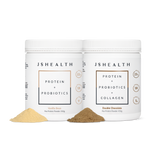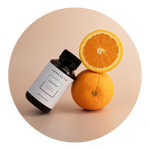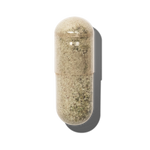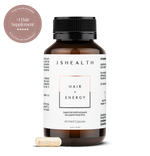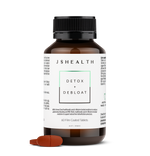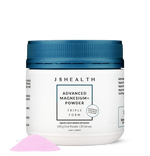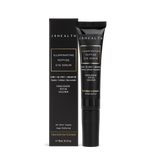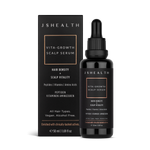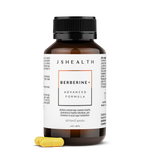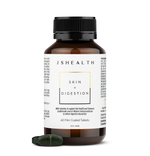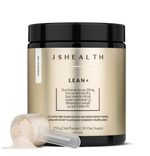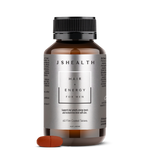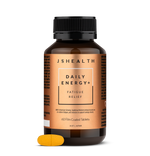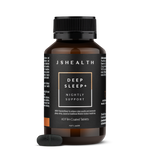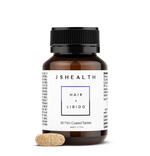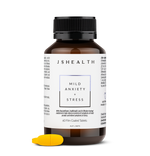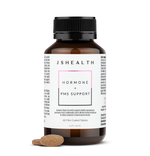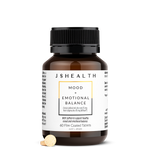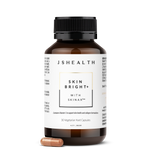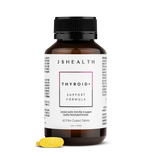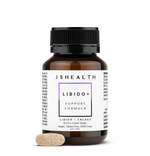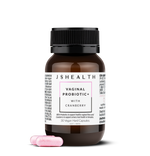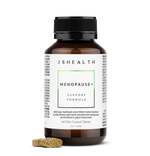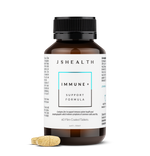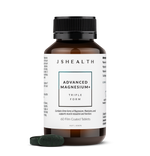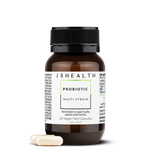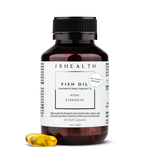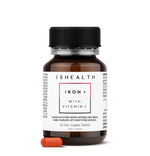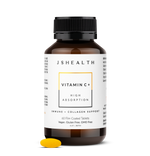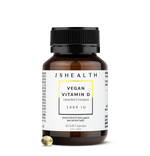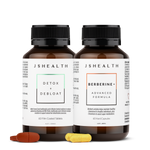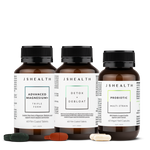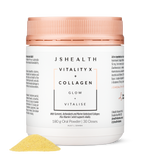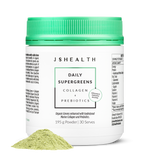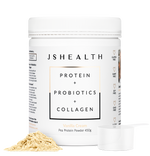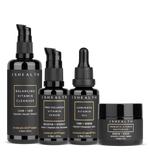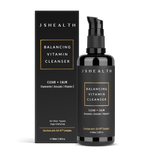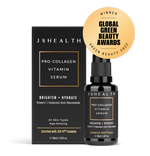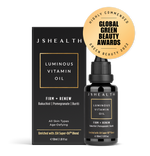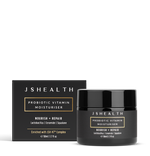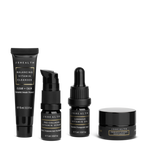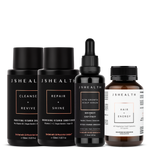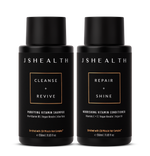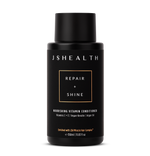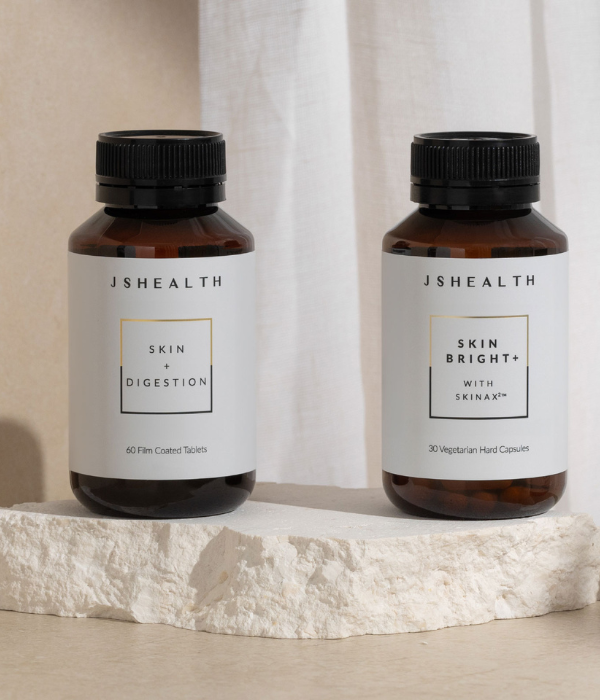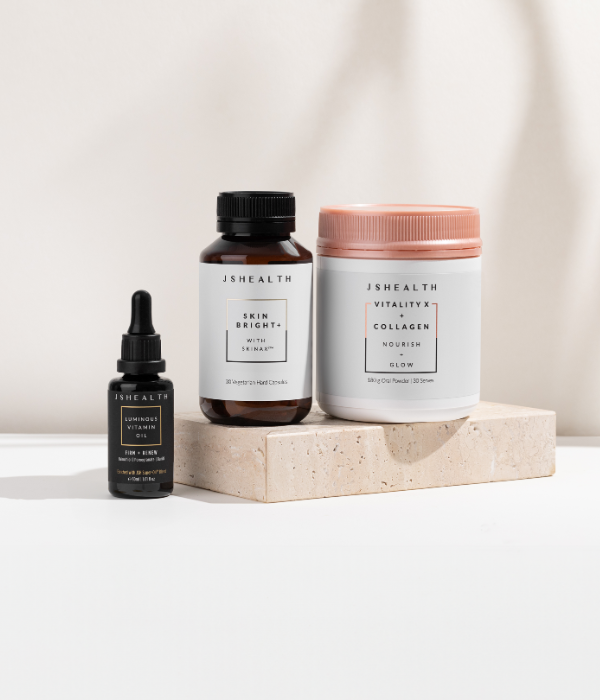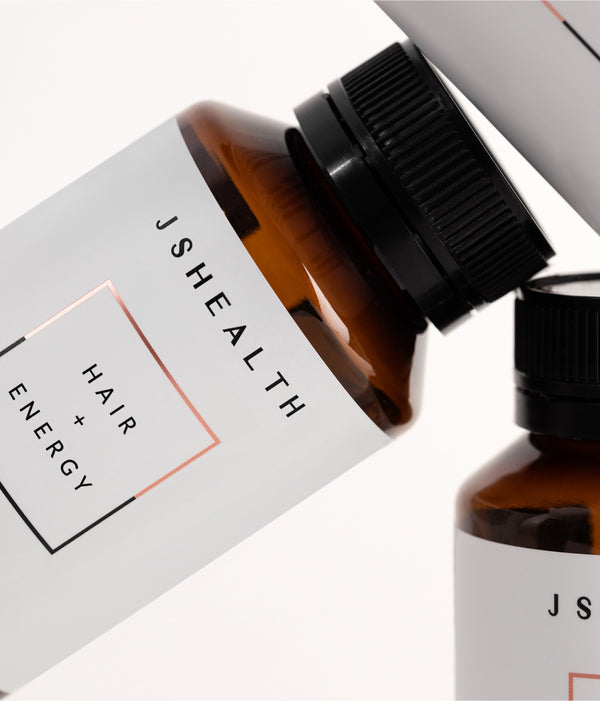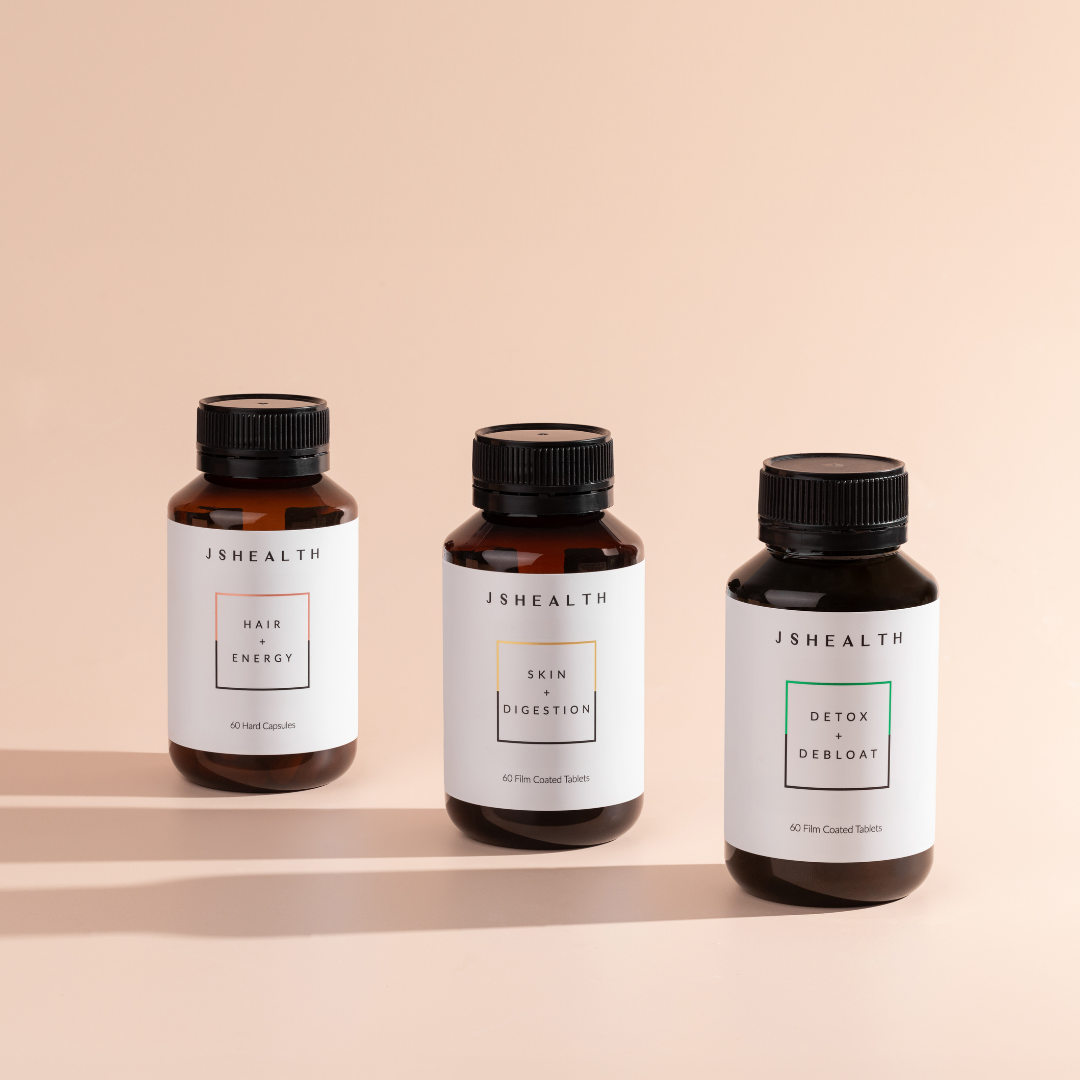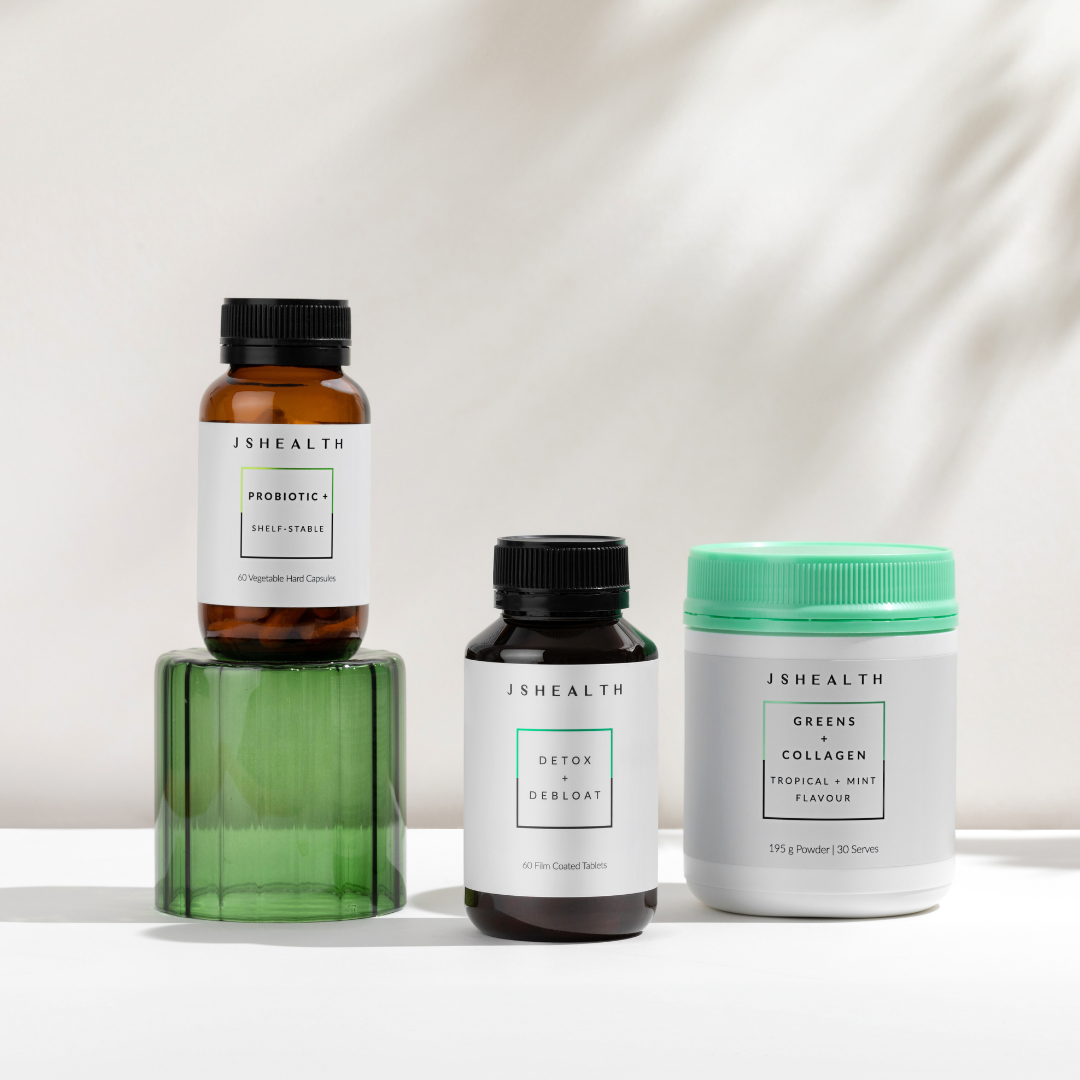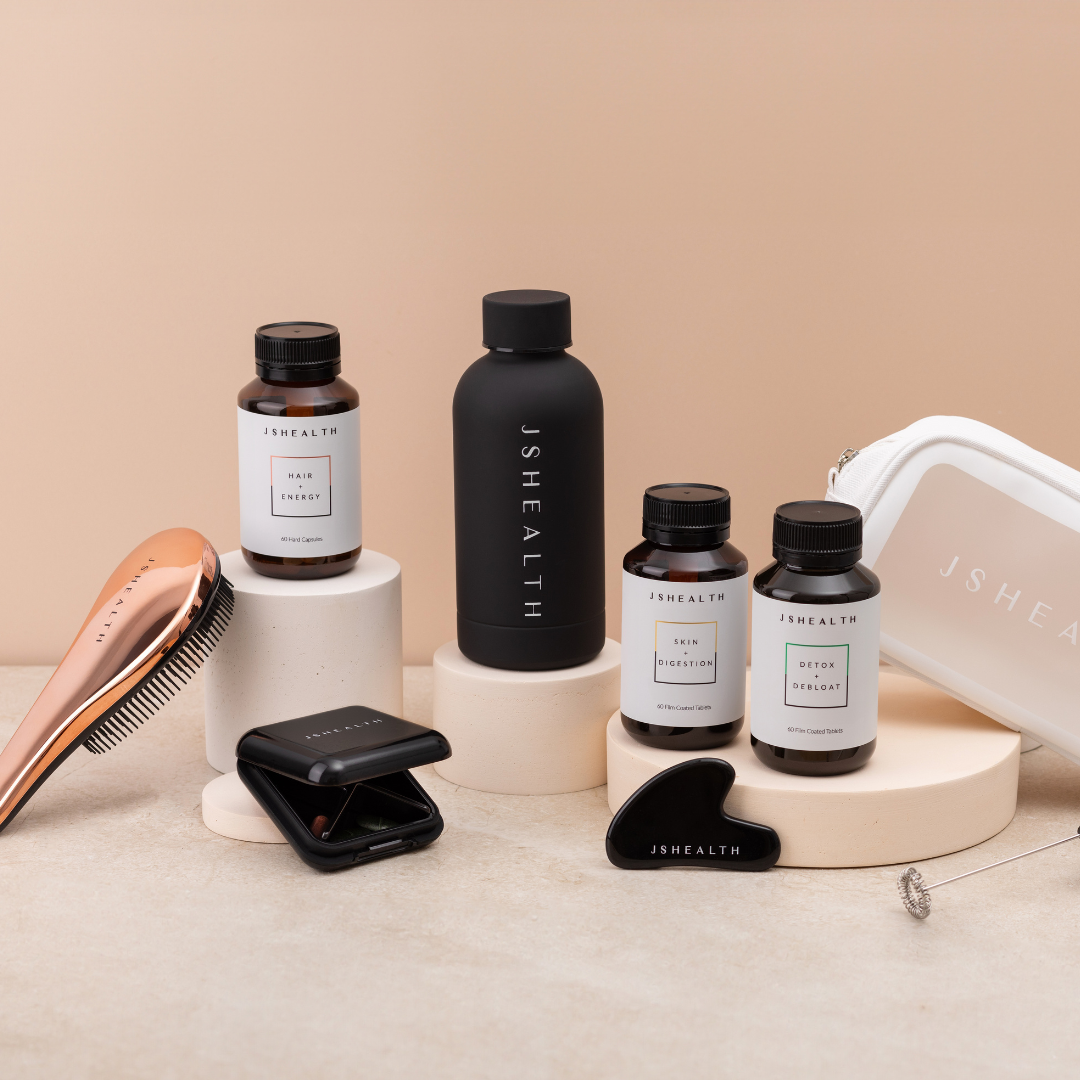What Benefits Does Fennel Seed Have for a Woman’s Body?
If you've yet to discover the multifaceted benefits of Fennel Seeds, you're in for a treat! These aromatic and flavourful seeds (known scientifically as foeniculum vulgare) pack a powerful health punch, particularly for women.
Following the JSHealth philosophy, aim for a balanced intake of nutrients. Embrace a diet full of wholesome foods and natural ingredients such as Fennel Seed. Enjoy your meals without the rules, because a healthy life and mindset is the key to long-lasting change!
What Are Fennel Seeds?
Fennel Seeds are tiny, potent carriers of nutrition, native to the shores of the Mediterranean but have found a home in kitchens around the globe.
The fennel plant is a beautiful, hardy herb with feathery leaves and bright yellow flowers stemming from the fennel bulb. Once these flowers fall away, the Fennel Seeds appear, ready to be harvested.
Notably, these seeds are a staple in Indiancuisine, lovingly referred to as “saunf,” and are used for their unique liquorice-like flavour and remarkable health properties. These seeds are also a staple in Mediterranean cooking, lending a sweet aniseed flavour that perfectly complements a variety of dishes.
How Are Fennel Seeds Used?
Fennel Seeds' versatility makes them a shining star in the realm of natural wellness and home remedies. They can be used in a variety of ways, each a unique facet of their potential benefits.
One popular way to reap the benefits of Fennel Seeds is by brewing a soothing cup of fennel tea. This aromatic brew is a beloved remedy for indigestion and is also considered a powerful detoxifying agent.
The transformative power of fennel can also be unlocked through fennel essential oils. The oil extracted from the seeds retains many of the seeds' beneficial properties and is often used in aromatherapy and skin care for its soothing and calming effects.
As stated earlier, the use of Fennel Seed powder and raw fennel in meals is commonplace in many Indian kitchens. Whether in stews, bread, or as a breath-freshening treat after meals, Fennel Seeds enhance food with their unique anise-like flavour and nutritional boost.
What Nutrients Are in Fennel Seeds?
Fennel Seeds are an absolute powerhouse of essential nutrients, all in a small, aromatic package. Each seed provides a broad spectrum of vitamins, minerals and phytonutrients that help to nourish the body and support various physiological processes.
Here are some key nutrients found in Fennel Seeds:
- Calcium: This mineral is crucial for bone health, aiding in the formation and maintenance of strong, healthy bones and teeth. Calcium also supports muscle function and nerve transmission.
- Potassium: Often associated with bananas, this essential mineral assists in regulating blood pressure by counteracting the effects of sodium. Potassium aids in maintaining fluid balance and healthy muscle function — an important addition to any balanced diet.
- Magnesium: This nutrient is significant for nerve and muscle function. It plays a pivotal role in converting food into energy and creating new proteins from amino acids. Magnesium is also involved in muscle contractions and nerve signals, supporting heart health, bone formation and overall cellular health.
- Manganese: Manganese is an essential mineral that aids in metabolism and bone development. It helps the body metabolise carbohydrates, amino acids and cholesterol. Also, it plays a vital role in bone development and brain function.
- Vitamin A: This is a fat-soluble vitamin essential for eye health. It supports the formation and maintenance of healthy teeth, soft tissues, mucus membranes and skin. It also produces pigments in the retina of the eye and supports good vision, especially in low light.
- Vitamin C: Fennel Seeds are rich in Vitamin C. This vitamin is necessary for the growth, development and repair of all body tissues, playing a vital role in functions like immune system support, wound healing, absorption of iron, and maintenance of cartilage, bones and teeth.
- Selenium and Phosphorus: These nutrients found in Fennel Seeds support healthy thyroid function and assist in the maintenance of body tissues. Phosphorus is crucial for forming bones and teeth, producing DNA and RNA, and managing how the body stores and uses energy.
- Anethole and Estragole: These are essential oils found in Fennel Seeds. Anethole is known to be sweeter than sugar, giving fennel its characteristic flavour, but it’s also shown potential in supporting digestive and overall health. On the other hand, Estragole also contributes to the sweet anise-like aroma and has been used traditionally for various health purposes.
- Nitrites: Nitrites are compounds present in Fennel Seeds that further contribute to their health-supporting potential. These compounds have been studied for supporting heart health and the circulatory system.
How Do Fennel Seeds Support Women’s Health?
Fennel Seeds have long been cherished and recognised in traditional wellness practices for their versatile benefits, particularly for women's health. The unique blend of nutrients, essential oils and phytonutrients in Fennel Seeds supports various aspects of health, from digestive wellbeing to hormonal balance.
Let's delve deeper into understanding how these small seeds can leave a significant impact on our health:
Digestive Health
Fennel Seeds are most renowned for their positive effects on the digestive system. They are rich in fibre, aiding in soothing bloating and constipation. Thanks to their antispasmodic properties, they can help soothe digestive discomforts.
The essential oilanethole present in these seeds supports the secretion of digestive enzymes, further supporting digestion.
Heart Health
Fennel Seeds are a heart-friendly addition to our diets. They're rich in potassium, a mineral that helps support healthy blood pressure, and magnesium, which plays a role in heart rhythm.
All these factors together contribute to healthy cholesterol levels and overall heart health.
Hormonal Balance
Thanks to their phytonutrients that mimic oestrogen's action, Fennel Seeds have been associated with supporting hormonal balance in women.
While it's crucial to maintain balance and not overconsume, moderate amounts of Fennel Seeds could potentially soothe menopausal symptoms, such as hot flashes and dryness.
Lactation
Breastfeeding mothers may find Fennel Seeds particularly beneficial. Historically, they've been used as a galactagogue, a substance that supports lactation.
Fennel's potential to support breast milk production could help mothers in the breastfeeding journey, though it's essential to consult a healthcare provider before starting any new dietary regimen.
Weight Loss
Finally, Fennel Seeds could be a helpful ally in weight management. High in fibre and potentially supporting digestive enzyme secretion, these seeds can aid in feelings of satiety, helping us resist unnecessary snacking.
Are There Any Side Effects of Consuming Fennel Seeds?
While Fennel Seeds can be a great addition to a balanced diet, it's essential to consume them in moderation, as eating too many of them could result in a few undesirable side effects:
- Some individuals may experience allergic reactions to Fennel Seeds, manifesting as skin rashes, breathing difficulties, or increased heart rate.
- The compounds anethole and estragole present in fennel have been linked to certain health risks when consumed in large quantities.
- Fennel's potential effects on oestrogen levels could interfere with hormone-sensitive conditions or medications, so it's important to consult with a healthcare provider before incorporating them into your diet if you fall into this category.
- Pregnant women should also seek professional advice before consuming Fennel Seeds, particularly in supplement form, due to their potential effects on hormonal balance.
How Can We Incorporate Fennel Seeds Into Our Diets?
Incorporating Fennel Seeds into our diets can be a flavourful journey. In India, Fennel Seeds are commonly consumed as a mouth freshener, serving the dual purpose of aiding digestion and combating bad breath.
While that’s one easy option, here are a few more ways to incorporate more Fennel Seeds into your daily routine:
- Fennel tea can be an excellent start to the day or a soothing evening ritual. Simply steep a spoonful of Fennel Seeds in hot water, strain and enjoy the aromatic brew.
- Raw fennel and Fennel Seed powder can also be used in salads, bread, soups and stews, lending a distinctive flavour and a boost of nutrients.
- Fennel essential oil can be diffused in the home for its calming effects for those who enjoy aromatherapy.
The Bottom Line
Fennel Seeds, our wonderful gifts from Mother Nature, are power-packed with essential nutrients and potential health benefits. The long list of nutrients provide a variety of health benefits in digestive, hormonal and heart health.
Perhaps the best part about Fennel Seeds is their versatility. There are many easy ways that you can include them in your daily life, whether it’s tea, powder, oil or raw seeds. As always, it’sbest to consult a nutritionist or dietitian for guidance regarding consumption amount.
Sources:
All About Fennel Seeds | Recette Magazine
Uses for Saunf (Fennel Seeds) in Indian Cooking | The Spruce Eats
Free Radicals, Antioxidants and Functional Foods: Impact on Human Health | PMC
5 Side Effects of Consuming Excessive Fennel Seeds | The Times of India
